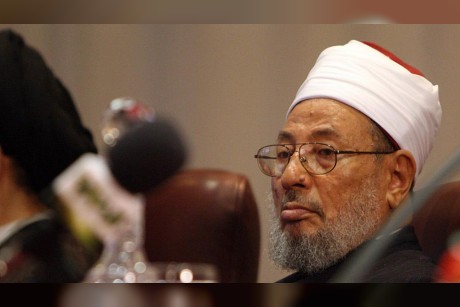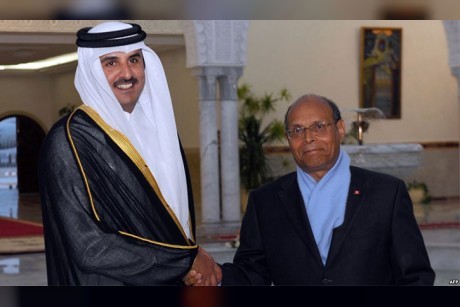Earlier this year, President Donald Trump accused Qatar of funding and promoting terrorism all over the world.
“Qatar has funded terrorism at a very high level,” he said, and it seems many in the White House shared his view.
Lianne Hikind, a professional writer in the Middle East affairs, wrote in her article that the former White House Chief Strategist Steve Bannon had this to say about Qatar during a discussion at The Hudson Institute this week. He said repeatedly in his remarks that the Qatar situation was more important than the crisis in North Korea.
“I think the single most important thing that’s happening in the world is the situation in Qatar,” he said, expressing his support for the boycott.
Bannon was joined at the event by former U.S. Secretary of Defense Leon Panetta and CIA Director Robert Petraeus, both of whom also expressed concern about Qatar’s ties to terrorism, terror financing, and some of the Islamic world’s hate preachers.
Exhibit A is Yusuf Al-Qaradawi, the Egyptian-born cleric and religious leader who is now a Qatari citizen and has used Al Jazeera, Qatar’s state-funded media outlet, to spread a message of hate across much of the Middle East.
If the Trump administration hopes to help end the ongoing boycott on Qatar, then it must pressure the Gulf nation to distance itself from hate preachers, especially Qaradawi, and allow him and others on the list to face consequences.
For many years Qaradawi’s talk show on Al Jazeera has condoned and encouraged suicide bombings. The controversial preacher has endorsed Hitler and the attempted genocide of the Jewish people throughout history.
Qaradawi’s views have resulted in bans on Qatari citizens entering several countries, including the United States, the United Kingdom, Tunisia and France.
In many ways his personal fortunes reflect those of the emirate of Qatar which he now calls home. Not long ago he was respected across the globe; now he is an international pariah.
Qaradawi is also on a list created by Saudi Arabia, UAE, Bahrain and Egypt of 59 people and 12 Qatari entities that are accused of promoting terror. Qatar has also repeatedly ignored extradition requests for Qaradawi from Egypt that began in 2015 when the cleric called for jihad in Egypt after the ouster of the Muslim Brotherhood.
Qatar must disavow Qaradawi and cast out such “religious leaders” if they want to once again be viewed as a reliable anti-terror partner. Qaradawi is not merely an example of Qatar’s support for terrorism; his support for terrorists like Hamas and the Muslim Brotherhood, his calls for violence, “resistance” and jihad must be opposed by all those who favor freedom, peace and justice.
Some of the demands on Qatar — such as shutting down Al Jazeera — may be unrealistic but if Qatar really wants the rest of the world to believe it opposes terrorism, it could start by deporting one of its most fervent endorsers.



